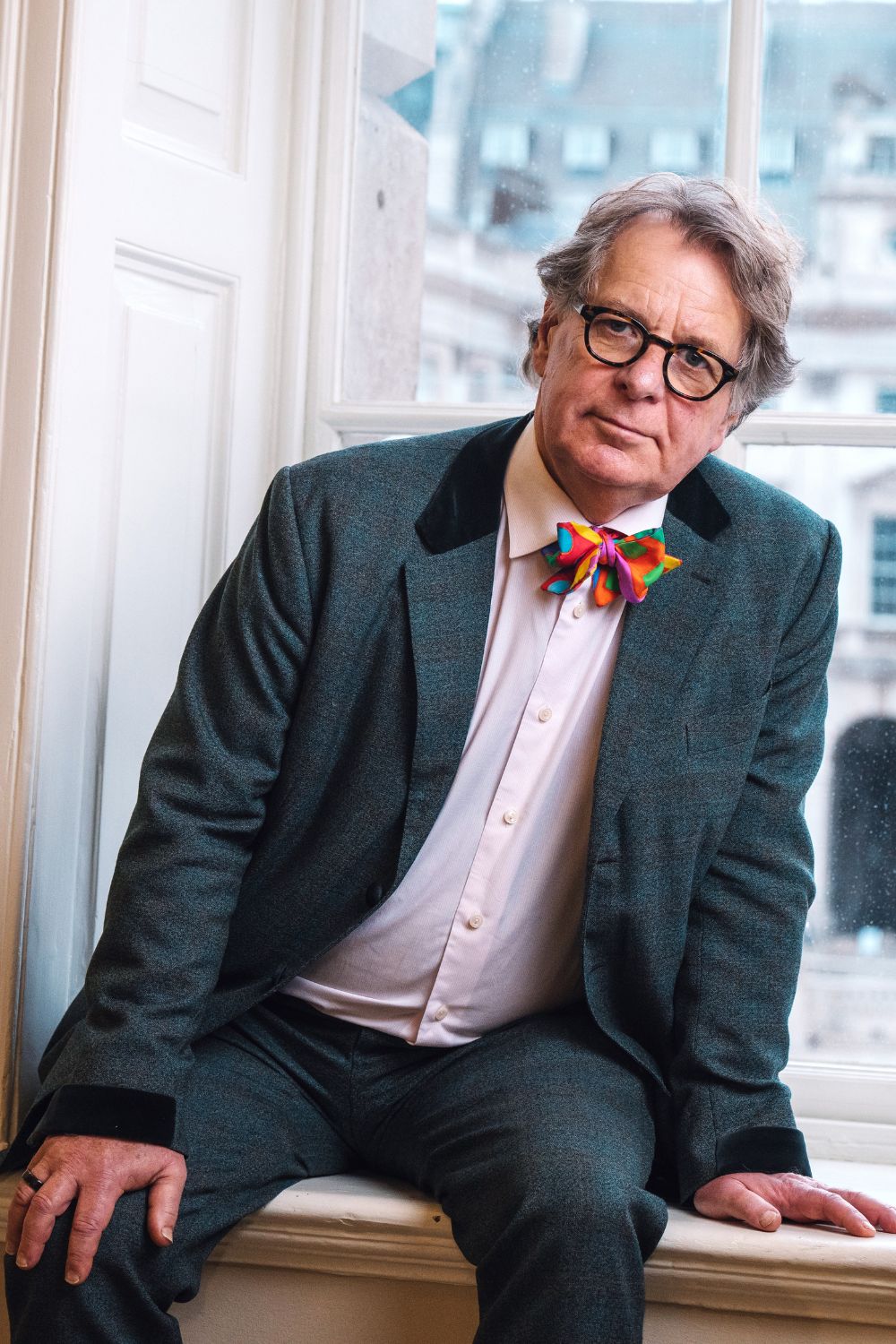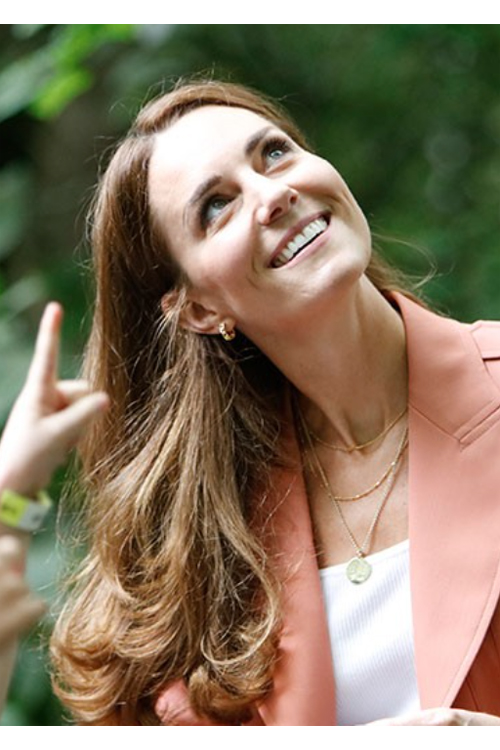
Mark Borkowski On The Future Of Journalism & The Changing Media Landscape
By
10 mins ago
New media rules, new PR rules
Mark Borkowski is a highly acclaimed PR and Communications industry figure, renowned for his expertise and unmatched experience spanning four decades. His influence in the industry has earned him a place alongside figures like Alistair Campbell and in PR Week’s list of the 25 most influential industry figures. A sharp observer of the cultural zeitgeist, Borkowski understands better than most how the media works – and where it’s heading.
At our first Great British Brands breakfast of 2025, hosted at The Arts Club and sponsored by Rathbones, he offered a stark but essential reflection on the state of modern journalism and the new conditions under which PRs must operate; diving into the power of perception, the role of emotion, and why the smartest people in the room are often standing at the back.
GBB Breakfasts are sponsored by Rathbones.
Mark Borkowski: ‘The Media Has Changed – And It’s Not Going Back’
Once dictated by newsrooms and editors, today’s media landscape is ruled by algorithms, and clickbait, emotion is the signal, facts are just noise. We are experiencing perception warfare, and attention is the most valuable currency. Traditional outlets are weakening, attention spans are shrinking, and platforms like TikTok, Instagram, podcasts, X and WhatsApp dominate.
PR today is less about securing a page in the paper and more about fostering an emotional connection, and managing fragile reputations across fast-moving, fragmented digital ecosystems.
At our agency, we’re focused on reputation management, story seeding, and navigating a culture driven by speed, volume, and the relentless pursuit of virality.
New Rules of the Game
WhatsApp isn’t just for gossip. Instead, it’s a key source of news. But it’s a dangerous one. We’ve seen trust destroyed and careers shaken by leaked screenshots from private chats. One major tabloid story even came from a celebrity’s own daughter.
TikTok is now the primary news source for over half of 18–24 year olds. That tells you everything about where PR needs to be. Traditional media no longer has a monopoly on narrative.
Platforms like X (formerly Twitter) are chaotic. If you haven’t seen the documentary on Twitter’s origins, watch it – what began as an idealistic tech experiment has become an unregulated nuclear bomb. Bots are generating and spreading fake news faster than humans can react.
Bots now create 25 percent of content we interact with on social media. That’s a terrifying statistic for anyone protecting a brand. Do you respond? Stay silent? Fight fiction with facts? In this Wild West, the old rules don’t apply.
Journalists are also under huge pressure. At Reach, for example, reporters are expected to file eight stories a day – including promoting them on social and optimising for SEO. It’s less about truth, more about clicks. Brands that think ‘no comment’ is a strategy? You’re just fuelling the fire.
And AI? It’s already here. Some clients already use ChatGPT to draft all their comms. It’s efficient, but it’s not creative, and as we’ve seen recently, it’s not always accurate. When AI is being used to factcheck its own work, authenticity is becoming an increasing rarity. And yet, a year from now, AI might be writing punchier headlines than we can. We’ll have to wait and see if these headlines are true.
We’re Drowning In Noise
If the average person spends 75 percent of their time online, how do you cut through? How do you build trust in an age of disinformation, short attention spans and cultural chaos?
Some brands stir controversy on purpose. Look at Balenciaga, who leaned into scandal to stay top of mind. It’s risky, but effective. Others, like Bud Light or Elon Musk, have learned the hard way that virtue signalling without authenticity will backfire.
Audiences crave simplicity. That’s why people still flock to Trump, Joe Rogan, or MrBeast – who’s gone from gamer to global media force. His Beast Games show on Amazon isn’t just entertainment; it’s a study in modern influence.
And the news is so depressing, 39 percent of people now actively avoid it. Instead, they retreat into echo chambers that reinforce their views – fuelling conspiracy theories and mental health crises. We’re being pulled further into a world of curated unreality.
When Crisis Hits, It Hits Hard
Most PR disasters come down to human error. Ego, poor advice, or just bad decisions. The worst thing a high-profile client can do? Surround themselves with sycophants. What they need is a critical friend – someone willing to deliver hard truths.
Many brands, especially those managed from overseas, don’t understand the UK media’s specific quirks. That’s dangerous. Fear of the tabloids leads to silence – and silence is fatal.
That’s why we created PREEMPT: reputation insurance for individuals. Because when the crisis hits, most people call the lawyers first – and that can make it worse. You need a plan before things go wrong. This isn’t a phase. It’s the new normal. And if anyone on your team still doesn’t get that? Fire them.
What Comes Next?
Print is on the brink. The Daily Mirror now circulates just over 200,000 copies. When one major title folds, the others will follow – and everything will move online.
Even in crisis there’s still hope. Trusted voices – whether in newsletters, podcasts, or new formats – will rise. But disinformation will grow too, and it’s a real threat to democracy. Every political TikTok account was targeted during the last UK election. Big Tech figures like Peter Thiel now openly question whether democracy is even viable.
PR’s new rules. PR is the art of emotional truth in an age of synthetic chaos, there is still room for genuine insights to be heard, you just need to be emotionally translated. Truth, no matter how brilliant, is powerless without emotional propulsion.
The media may be more chaotic than ever, but we can’t afford to look away.
For more information on Borkowski, visit borkowski.co.uk



